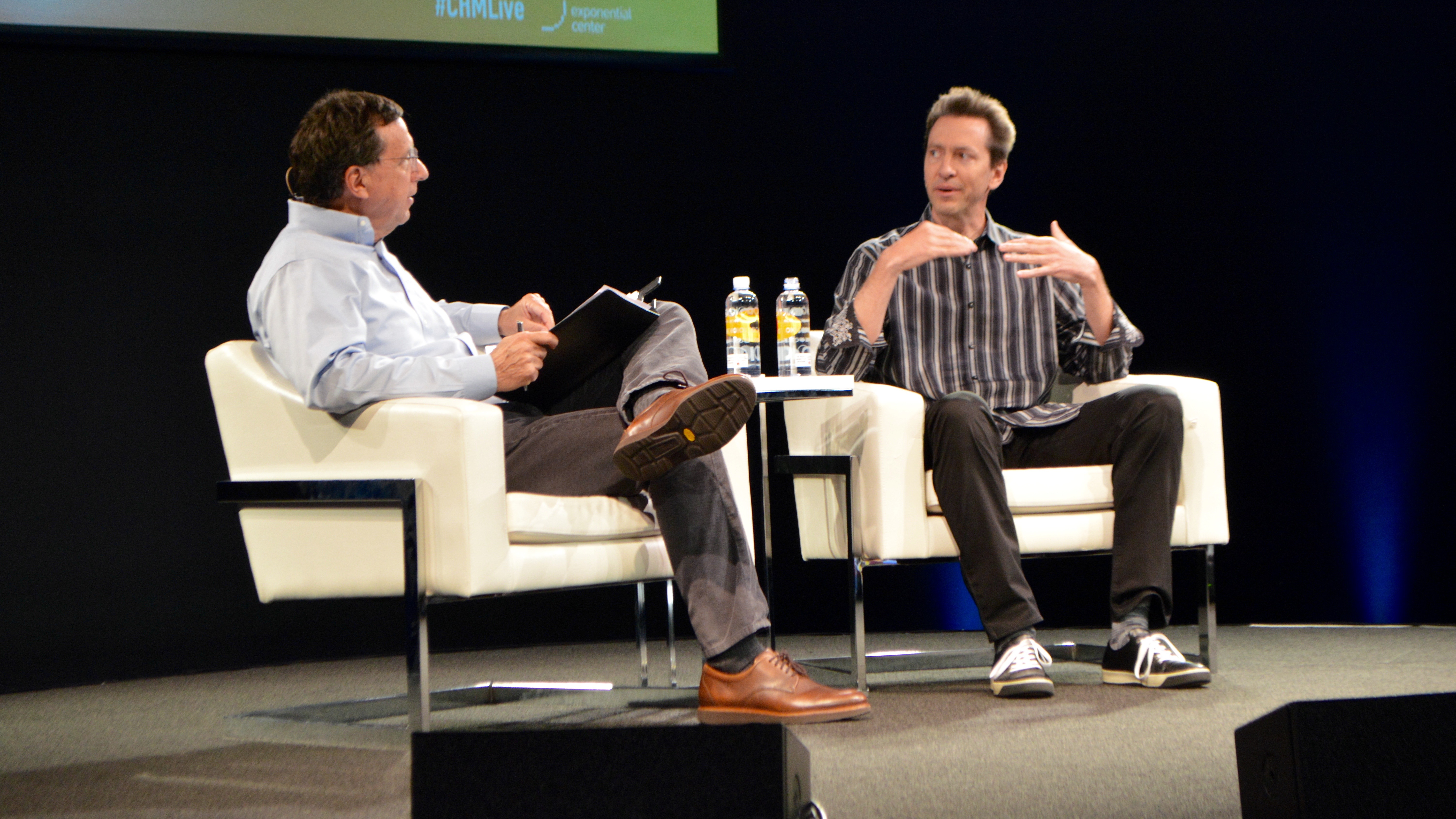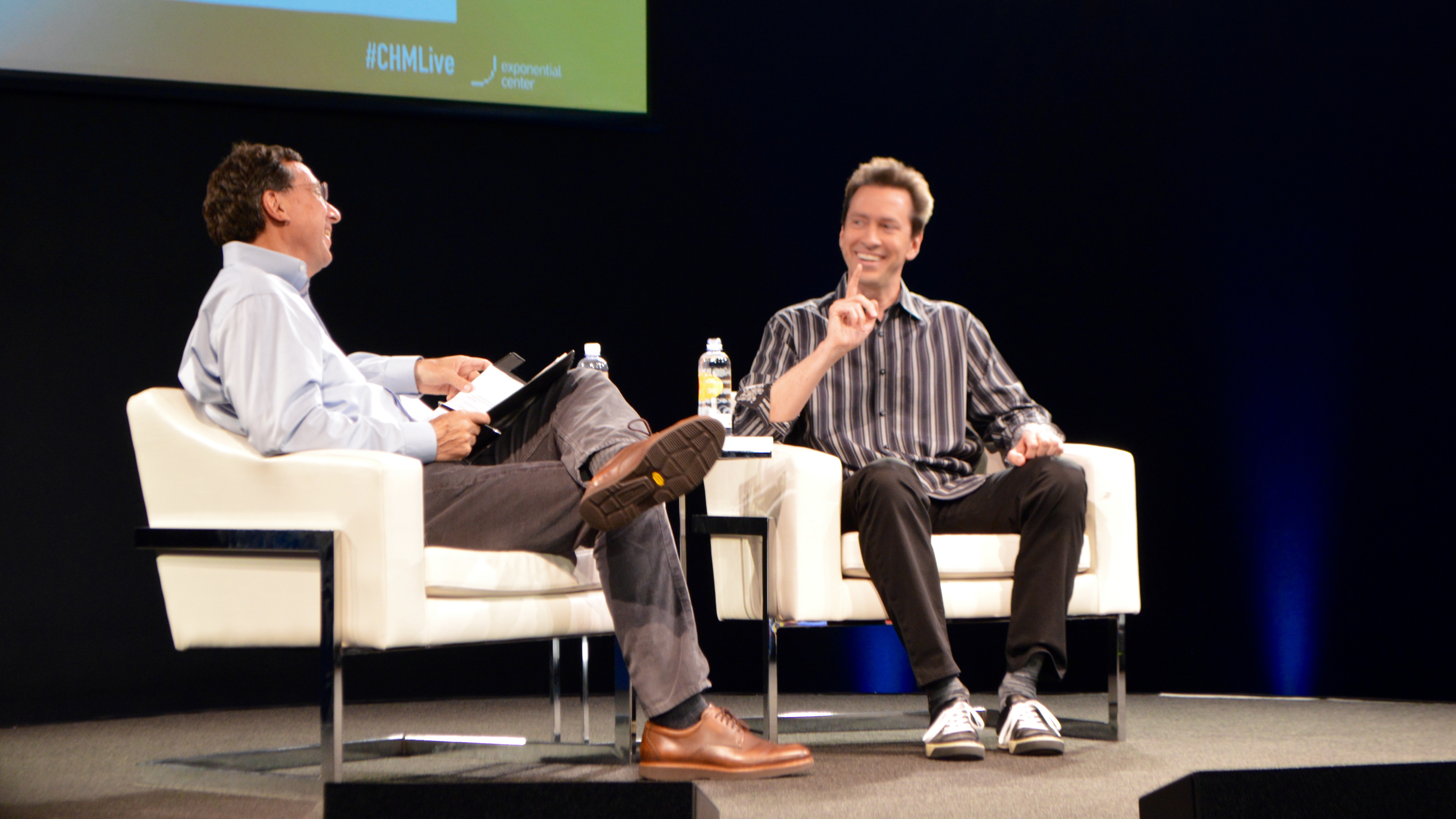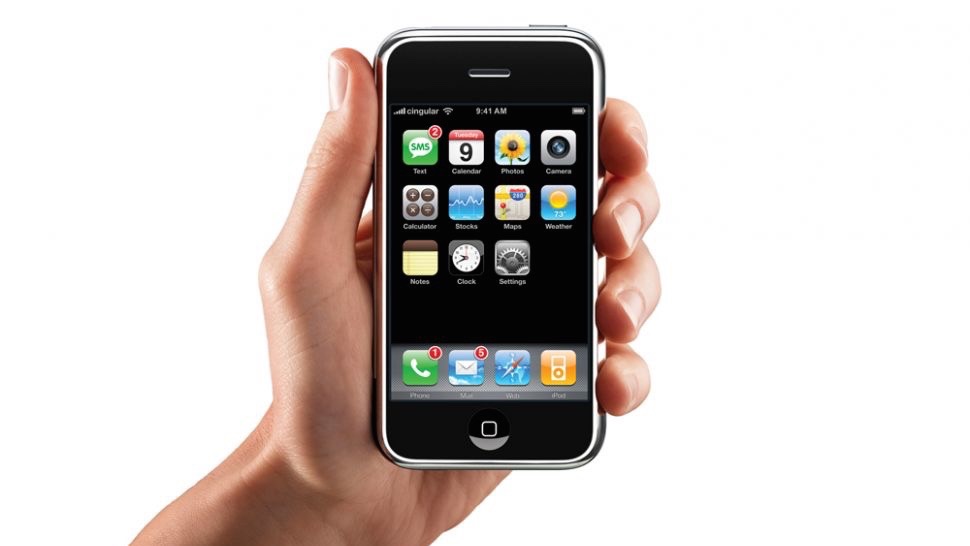Former Apple exec Scott Forstall on creating the iPhone and what the reviews got wrong
Plus here's how the iPhone really came to be

Scott Forstall hasn't spoken publicly about the iPhone in five years, not since he was fired from Apple in 2012.
But Forstall, Apple's former SVP of iOS who worked closely alongside Steve Jobs from the time Jobs hired him at NeXT, spoke candidly about the creation of the original Apple handset during a fireside chat with journalist John Markoff Tuesday night at the Computer History Museum in Mountain View, California.
Forstall was running the macOS 10 team when the first embers of iPhone started to glow more than 10 years ago. Apple was actually working on a tablet project at the time, and Forstall recounted that Jobs wanted the tablet to feature capacitive touch as well as multitouch to one-up someone he "hated" who worked at Microsoft.
"It began because Steve hated this guy at Microsoft. That is the actual origin," Forstall said, quickly adding the person at Microsoft wasn't Bill Gates.
After hearing this person brag about the work Microsoft was doing on tablets, "Steve came in on a Monday, there was a set of expletives and then, 'Let's show them how it's really done.'"
Jobs was adamant about not using a stylus, and set the hardware team to work developing a multi-touch tablet.

Part of the impetus to create the iPhone was also to develop a product that would overtake iPod, which accounted for half of Apple's sales at the time, Forstall said. This was especially important as Apple was transforming from a computing company into a consumer electronics company.
Get daily insight, inspiration and deals in your inbox
Sign up for breaking news, reviews, opinion, top tech deals, and more.
"We were always looking at what would overtake iPod. What would cannibalize that," he said. "The one thing that seemed like it [could] was phones. Everyone was using phones."
The idea was nascent until Jobs and Forstall were having lunch one day, using their phones. "We hated them," Forstall said, and so it seemed did everyone else around them.
"No one seemed like it was a pleasurable thing to use a phone, but it's a nice thing for communication," Forstall said.
It occurred to the pair to take the demo that was being developed for multitouch on the tablet and shrink it to a device that could fit in a pocket, still using the same touch technology. They did just that.
"The second you saw this demo, you knew this was it," Forstall said. "This was the way a phone had to behave."
Jobs agreed. "Steve said, 'Put the tablet on hold, let's build a phone. Let's build a phone based on multitouch.' And that's what we did."

Years of work on Project Purple, the codename for Apple's phone project, led to the raucous first iPhone reveal in 2007. But there was also negativity, and Forstall commented on the reception to the device, which broke from any phone that had been built before, but was also held to those phones' standards.
"When the original iPhone came out, the reviews didn't get it," he said. "The reviews talked about the number of clicks - 'Oh, to send an email, it takes you six taps,' or something.
"And, so it was being compared against other smartphones of the time, BlackBerry et al, according to the metrics people thought were important at the time. They didn't get it. What they didn't get was we were changing the entire paradigm. We were changing the entire way things were done."
He said initial sales "were nice," but not to the level he expected after the amazement he experienced after that first demo and using the original working prototype.
But Forstall "knew it was going to be huge", especially after spending time with one in the real world, when he and Jobs were the only people to have iPhones before the device was unveiled.
"It never felt like work to use it," he said. "It always felt amazing. It always felt special."
He also briefly touched on skeuomorphic design, a realistic style he was known for that dictated Apple software for years before Jony Ive took over to lead design at the company. Their differing design philosophies are speculated to have led, in part, to Forstall's firing.
"I had never heard of skeuomorphism," Forstall said. "When I look at design - when I look at good design - it's approachable, friendly, you can use it without a manual. It's fun.
"We talked a lot about photo-illustrative design. It was infused into the design sense of Apple by Steve Jobs since the original Mac. We used these design philosophies. It doesn't mean we loved it, or loved every single part of it. We know it worked. How do we know it worked? You just have to watch people use it."

Forstall, who has spent the years since leaving Apple producing award-winning Broadway shows, advising startups and coming face-to-face with sharks while spear fishing, said he's not currently building a device himself, like Android co-founder Andy Rubin has done with the Essential Phone.
Hearing Forstall talk about creating the first iPhone is apropos as this year marks the device's 10th anniversary. The iPhone is expected to go through a significant redesign with the iPhone 8, which will likely launch in September. It's then we'll see just how far the iPhone has come in the 10 years since Steve Jobs unveiled the very first one to the world.
Forstall spoke with what seemed like genuine delight about his time at Apple, creating the iPhone and especially about working with and knowing Jobs, who passed away in 2011.
He relayed anecdotes of Jobs insisting on paying for lunch, even though his salary was $1 a year, of flying with him to Las Vegas to demo the first iPhone to the CEO of Singular, and of Jobs helping Forstall recover when he was in the hospital, his body ravaged by a virus. Jobs was compassionate, dedicated and funny, Forstall said, in addition to being famously driven and demanding.
"Steve was a unique person on this planet," Forstall said. "[He was] the most intense person I’ve known. I've met a number of world leaders, and I can tell you having dinner with a world leader is more relaxing than lunch on a Tuesday with Steve."
- Our review of the iPad Pro 10.5
Michelle was previously a news editor at TechRadar, leading consumer tech news and reviews. Michelle is now a Content Strategist at Facebook. A versatile, highly effective content writer and skilled editor with a keen eye for detail, Michelle is a collaborative problem solver and covered everything from smartwatches and microprocessors to VR and self-driving cars.
